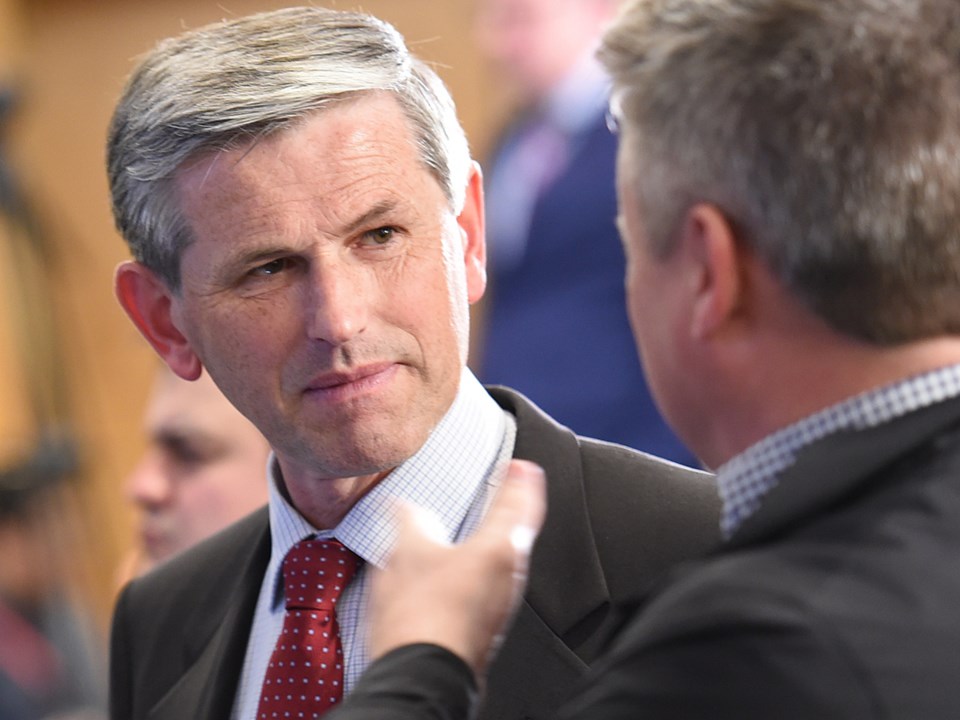Update: Andrew Wilkinson was elected the new leader of the B.C. Liberal Party in a vote on Saturday, Feb. 3. Wilkinson beat out former Conservative MP Dianne Watts with just over 53 per cent of the vote.
The Courier reached out to the six B.C. Liberal politicians vying to become leader of the party this week. Each candidate was asked the same questions for a short profile of their views on issues facing Vancouverites.
Housing
A community investment fund would give local governments the money they need to tackle the housing affordability crisis, says Andrew Wilkinson.
The fund would be equal to half of the province’s annual budget surplus, which this year would be $1.4 billion, he says.
That money would in part be available for municipal governments to bid on, with points going to those governments that show they have found ways to improve their development application process.
“We need to speed up permitting and reduce municipal liability,” he says, attributing some of the time it takes to get applications approved to municipalities’ concerns over being sued.
Transportation
With another million new residents expected in the next 30 years, it’s imperative that the provincial government work with local governments to create more density and expand transportation and transit infrastructure, he says.
He would help municipalities ensure they have sufficient planning office staffing levels while managing their liabilities.
This has to be done while making sure that the province doesn’t add to British Columbians’ financial burdens. “The province has to keep down the cost of living and taxes so people have enough money to get by,” he says.
To get all of these new residents, and those who already live here, from home to work or studies, more transit opportunities in the Lower Mainland are required. “We need to expand the area of a liveable city so if I want to go from Oakridge to Douglas College, I don’t have to think how far it is, I just get on transit.”
He’s against a transit referendum and wants to work with the federal and local governments to make sure current and future needs are met.
“We have to plan for 20 to 30 years from now and not live in the past,” he says.
Childcare
Wilkinson is committed to a pilot program to introduce junior kindergarten to children a year before school currently begins. This, and the community investment fund, could be used to help reduce the financial burden on families who face difficulties finding affordable childcare. The fund would reward those jurisdictions that remove obstacles of transforming existing school space to accommodate more childcare options.
The opioid crisis
As a former doctor, one of the issues Wilkinson is most passionate about is how to help people with addictions and lower the number of drug overdose deaths.
“We need a prescription monitoring program,” he says. When people have been on prescribed narcotics for a few weeks, they’d get a referral to the program to help ensure they don’t get addicted.
“Most of the current fentanyl deaths are among people who have been on prescription narcotics in the past,” he says. “I worked as an emergency physician in small towns and have seen the tragedy of addictions. We have a 25-year history of a substantial amount of narcotics being prescribed and we need to find a way out of that. We need to talk about pain management rather than prescription management.”
His campaign
Wilkinson has lived and worked in many parts of the province and is pleased with the response to his campaign. He’s had “excellent support from all over the province” and feels very good going into the leadership voting process, which begins Feb. 1.



